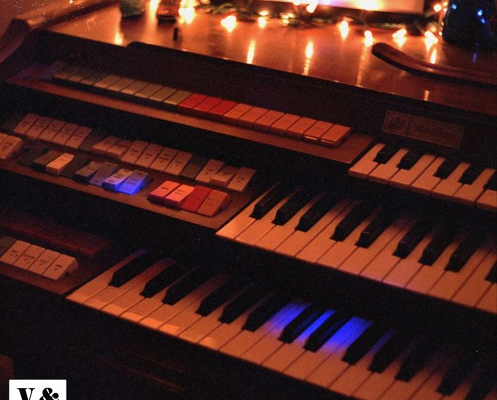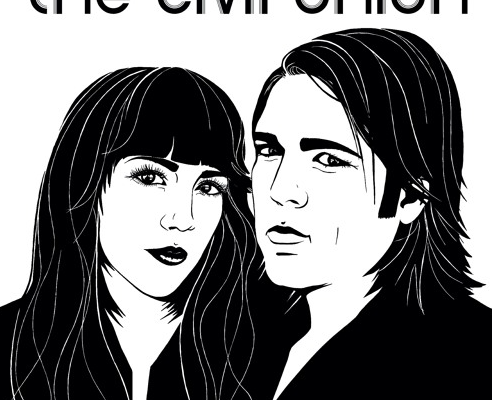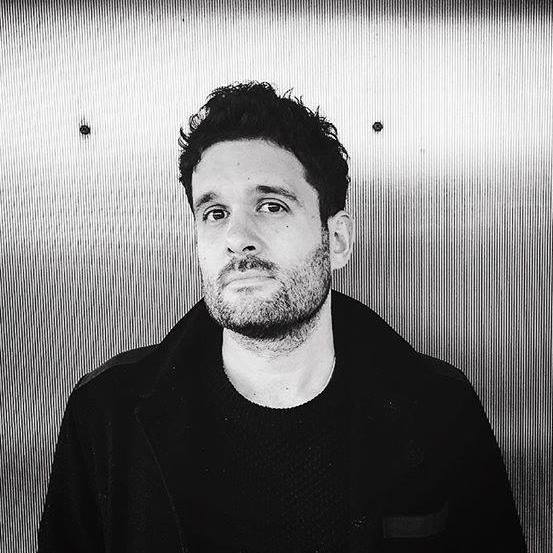In this candid interview, we sit down with Jayne Sugg to explore the profound changes that have shaped her artistic journey, from her early days rooted in religious music to her current introspective sound. We chart the pivotal moments that influenced her songwriting, her experiences growing up with the music of the 60s and 70s, and the challenges she faced during her creative rebirth. Jayne also shares the inspiration behind her upcoming album, Belief is Hard, providing insight into how doubt, belief, and transformation continue to drive her music forward.
Jayne Sugg, it’s a pleasure to sit down with you and discuss your fascinating career and artistic identity after your shift from religious music to a more introspective sound. Transitioning from religious music to a broader thematic scope must have been a profound experience. Can you describe a pivotal moment during this transition that significantly impacted your songwriting?
Thank you for having me! I appreciate this question because making such a decision really did affect my writing and music for the better.
Perhaps people raised in very devout families (of any religion or belief) who are reading here can grasp this: when you have inherited such a deep faith from the roots of your family, it will touch every aspect of how you live, how you think, and how you understand the world. I grew up in church. That has its pros and cons. A major pro is how beautiful and mystical many of my experiences in church were.
I still identify as a person of faith and staying connected to God is a key source of joy in my life. One of the biggest musical pros of course, was how incredibly vivacious and open and musical our community was. People would dance and sing and jump and shout. The songs we sang were original and written by the musicians on stage. The choir was huge, and the instruments were innumerable. I was singing along with my whole heart by the time I could stand on my own. That infectious love of music and atmosphere got into me, and I became part of the music team in middle school.
The opportunity to work with solid adult musicians, learn to song-write, lead a band, understand live performance, and do it every week as a teenager is something I still consider to be invaluable for my art today. I picked up multiple instruments during that period and got to play live often. Of course, once I got to college and went through a time of critical thinking and identity-shaping living on my own, life got very real and then came the cons.
Though faith and spirituality are still very important to me today, I had to significantly shift all of what I believed in order for any of it to survive. One of the biggest tenets I chose to let go of was the idea that all my music had to be “to God” and “for Christians”. Those limits stunted me greatly, they made me fearful and over time, blocked me fully. I didn’t know how to write music for myself, since I had only made music for the church. In 2020, I had been living in NYC for 3 years with my husband. Our neighborhood was on lockdown because of the pandemic and I decided to try and write music again. I found a book on my shelf called “The Artist’s Way” by Julia Cameron and started her 12 week program to unblock the artist within.
I realized that the most beautiful art, to me, was honest and true to the artist making it. So I stopped writing songs for certain people who believe certain things. I began to write songs about things that were on my mind: lost friendships, restlessness, doubts, chronic pessimism. Real things that are authentic to the human experience. 4 years later I have one EP out and my first album is on the way, which is something to show for that self-work and my spiritual journey. I’m really proud of the transition I’ve made for myself.
You also grew up to the rich soundtrack of 60s and 70s music, are these early influences still integral to your contemporary work?
Absolutely! Actually, bandmates and friends tease me because I rarely listen to anything that’s come out in the last 20 years. Sometimes I feel like my music taste was born in the 60’s and 70’s and latched itself onto me as a kid in the nineties, hanging in my dad’s office while his 300-CD-changer stereo blared The Doobie Brothers, Pat Metheny, Sly and the Family Stone, Everything but the Girl, Steely Dan, Miles Davis.
When we were recording both my EP and most recently this album, my producer and the band wanted to hear some songs that inspired what I was writing. Over and over again, I played the Spinners, I played Fleetwood Mac, Michael Mcdonald’s “Losin’ End”. Anything timeless, classic, with that brilliant tape-machine grit from an old studio and those seemingly pixelated sounds– I love it, and I want it to come through in my music.
After experiencing a creative block in 2020, how did completing ‘The Artist’s Way’ catalyse your journey towards redefining your identity as an artist?
In reference to the backstory that I’ve already shared a little in this interview, I’m really grateful to that book because a huge part of the work is to first notice the lies that you’ve been telling yourself about your creative limits, expectations, and the kind of life I think I should be leading as an adult, as a Christian, as a woman, etc. Then, you learn to allow yourself to be expressive freely, in any way you want. Finally, you take a risk to bet on yourself to share that art with the world. In completing the book and the program, I was able to admit that I wanted to make music on a professional level, that I could pull it off, and that I had the guts to take the leap and go for it. Identity redefinition: complete! Haha.
Belief is Hard is a poignant title for your upcoming album. Could you elaborate on the role that doubt, belief, and transformation play in the themes and lyrics of your new album?
Because faith is such a pillar in my life due to my upbringing and experiences, it’s the subject I am most comfortable writing about. When I had to decide for myself what beliefs I would keep, and which I would let go of (many religious sects refer to this as “deconstruction”), it was scary. It felt like the ground beneath me was falling through. It felt like God, who used to feel so close, was now unfathomably far. It really skewed my ability to keep old routines and habits that I’d spent my life learning. What better fodder for songwriting than all that? Ha! I write as an outlet.
Making songs about my own deconstruction was incredibly freeing and therapeutic. Yeah, like you said, the album is called Belief is Hard, named after the title track. That song especially encapsulates the main theme of almost every song on the album. Hoping for anything in today’s world is costly, messy, and far from easy. Counting on something, staying positive, praying and assuming anything could come of it– all of that can be impossibly difficult.
Where I come from, doubt is bad and belief is good. Where I am now, both can exist in the same place and are on the same spectrum. Many of the songs on this album just ask questions, and don’t really give any answers. “Speak to the Sky” is a song whose chorus asks where prayers go and what effect they even have. I don’t have that answer and I didn’t try to write one in the song. A lot of my songs and lyrics, listeners will notice, are just musings on faith and life. I’m hoping it can help people realize that being curious about life and its meaning is actually an okay way to live. It’s also an interesting way to experience and engage with remaining beliefs.
You’ve mentioned using motifs and themes from your past faith in your music. Can you give us an example of how you’ve woven these elements into your music production or song structure?
There are so many phrases and “colloquialisms” that come from church and ancient proverbs and holy scriptures. They make for very beautiful metaphors and I actually really enjoyed weaving them into my songs on this album. One of my favorites on the album is called “Cosmic Vision” (just released as a single this past week!) The overarching idea is what a curse it can be to see everything in black and white: heaven or hell, good or bad, right or wrong.
When you’re developing into an adult and everything you’re taught is so extreme, it can be exhausting and confusing to make decisions and find your way in the world. I call this phenomenon having “Cosmic Vision”. I sing about how I was born wearing glasses that only saw life one way. I also poke fun at Christian phrases like “spiritual attack” and “backsliding” and “eternal life”.
Another song on the album called “Electric Fences” is about losing a friendship, but I use the epic metaphor of shipwrecks and black water and darkness, all thanks to my upbringing with Biblical storytelling. Writing this album has been a really fun stretch for my imagination and it also pushed me to use what I know in a totally different, counter-intuitive way.
Which was the most emotionally demanding song to write and record for Belief is Hard?
I always have a big vision for my work: every note and production aspect is already in my head and ready to record if only I can explain it, write it, and lay out the chords, exactly as I have in mind, to all my bandmates and producers. That alone is emotionally demanding and it all came to a head for each song.
But one particularly tough one all the way around would be “Running from Me.” I called it my “red-headed stepchild” song for weeks in the early production phases because it felt so disconnected from my other songs on the album. Even in energy alone– it just took a lot of energy to write, to demo, to record, mix, produce! I even changed some of its lyrics again the day of recording at the studio! It was also stressful to record: lots of moving pieces, musicians, opinions, and limited time to get some sessions laid out. It was laborious to the very end, and even though I love the way it turned out, its final form really surprised me. I originally recorded the demo as a funky-soulful tune, and it evolved into an Abba-esque pop anthem (which I desperately wish Stranger Things would pick up in their next season, haha). As much of a groove as it is, it was also hard to write lyrically. I knew I wanted to capture the feeling of not really knowing yourself, your tastes, hobbies, likes, dislikes, when you’ve been conditioned to constantly redirect everything to religion…but I had no idea how to say that in a nuanced way. This one took many tries and has dozens of trashed lines, until I got it just right. My favorite on being “Ego based on every expectation given. Is my ghost that holy? Cause I never feel her when I’m alone, lights out, a quiet room. I keep on running from me.”
Successfully crowdfunding your album in 2023 shows significant support from your community. What has this support meant to you personally and professionally?
Oh my god, asking my community to believe in my art and back it with money was incredibly difficult– my Kickstarter campaign truly had me at my most vulnerable and also my most grateful. It showed me that art worth making and showing, poignant music projects, and big dreams, “take a village” as they say. Artists can’t do huge projects alone and shouldn’t try to. It also showed me that hundreds of people believed in my work and wanted to hear the music I was making.
Once I was fully funded, so much emotion washed over me– I was standing at a Citibike dock in the East Village, getting ready to ride to work, and I just started crying when I got the email that I met my goal. It felt like all the people who believed in me just lifted me up onto their shoulders so I could climb to another level. Professionally, it has added a lot of responsibility and organization to my repertoire of musicianship too: getting my rewards to everyone who bought one, be it an original cover song, handwritten lyrics, a personalized thank you note. It’s also kept me on top of deadlines to get this album recorded, sending updates and videos about the progress, releasing footage and songs to supporters and backers. It’s been a journey and the campaign has really helped to keep everything moving.
You recorded in both Tornillo, Texas and Woodstock, New York. How did the different environments of Sonic Ranch and Dreamland Studios influence the recording process and the final sound of your album?
Both spaces are so incredibly beautiful and peaceful. As someone who’s been living in NYC now for 6 and a half years, quiet streets and starry skies are so precious to me. Each studio gave me a lot of peace each morning and night and during the breaks between tracks. At Sonic Ranch, the Good Shepherd Collective was there as well, recording huge batches of songs for the year, so musicians were everywhere, all the time: eating in the kitchen, walking by the pecan farm, chatting by the casitas. Even if they weren’t playing on my song, they’d pop in during my recording times and bob their heads to the playback, or offer some tips / praise to keep us going. That was amazing.
At Dreamland, it was all me, all day, with my bandmates. We spent two days there and recorded nonstop, only taking breaks to eat and sleep. The creative energy and life force was palpable! We’d play it back, Juan Solorzano on guitar would want to go in and try something else for the song. Jordan Rose on drums would add tamborine after bongo after chime. John Arndt on piano would find an organ he wanted to try and add. David Gungor on bass would play new riffs until they hit perfectly. While the time at Sonic Ranch was more of my jumpstart since that’s where we recorded the first three songs that shaped the album, the time we had together at Dreamland really felt visionary, like a total craftmanship-zone to complete the album (post crowdfunding).
With the upcoming release of Belief is Hard, what are your aspirations for this album, and how do you see it influencing your future projects?
I want this album to find people who love a timeless sound, candid lyrics, and my voice. I am as much of a vocalist as I am a songwriter. I also want to shed light on the particular human experience of deconstruction, of identity shift, of tearing down to build again, better and stronger– the beauty and terror and pain of self-actualization and healing. I want it to be a catalyst for my future projects because this is my first project of being completely honest and vulnerable about an aspect of life to which no one is a stranger. I always want to be found making music as an ode to the beautiful retro influences that raised me, but also for that music to place emphasis on different human experiences we all move through, as I move through them. That’s the best way for art to serve the artist, and its audience. And I am all about that.
–
Stream Jayne Sugg on Spotify; follow the artist on Instagram and TikTok for more updates on her forthcoming LP, Belief is Hard.
Interview by Amelia Vandergast




No Comments